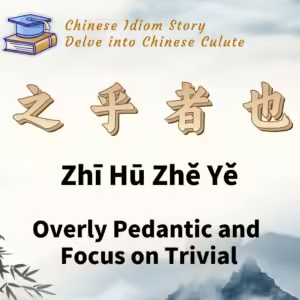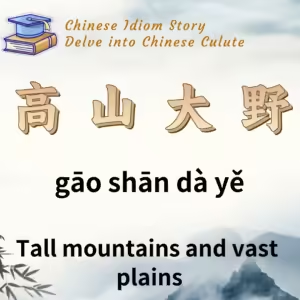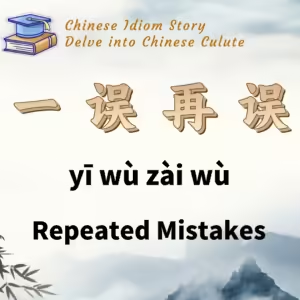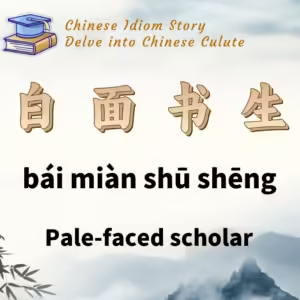
Chinese Idiom: 之乎者也 (Zhi Hu Zhe Ye)
English Translation: Overly Pedantic and Focus on Trivial
pīn yīn: Zhī Hū Zhě Yě
Idiom Meaning: This idiom mocks scholars who are overly pedantic and focus on trivial, literary details rather than practical matters.
Historical Source: Records of Xiangshan by Wenying (文莹).
Idiom Story: After Zhao Kuangyin (赵匡胤) became the first emperor of the Song Dynasty, he planned to expand the outer city. While visiting the Zhuque Gate (朱雀门), he noticed the inscription “朱雀之门” (Zhuque zhi men) above the gate. Finding it awkward, he asked his minister, Zhao Pu (赵普), “Why not just write ‘朱雀门’ (Zhuque men) with three characters instead of ‘朱雀之门’ with four characters? What’s the use of adding the character ‘之’?”
Minister Zhao Pu explained, “The character ‘之’ is used here as an auxiliary word.”
Zhao Kuangyin laughed heartily and remarked, “What practical use do these auxiliary words ‘之乎者也’ (zhī hū zhě yě) have?”
This incident gave rise to a saying among the people: “之乎者也已焉哉,用得成章好秀才,” which means, “Those who use ‘zhī hū zhě yě’ can form beautiful sentences and be regarded as good scholars.”
The idiom “之乎者也” thus came to mock those who focus on flowery, unnecessary words instead of addressing real, practical issues.






